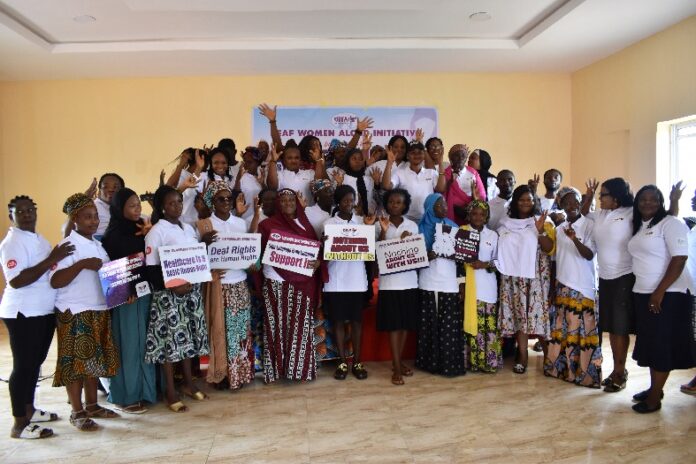Deaf Women Aloud Initiative (DWAI) has engaged health workers to enhance adoption of sign language to solve the problem faced by Deaf Women in accessing health care services.
As part of activities to celebrate International Week of the Deaf (IWD) and commemorate International Sign Language Day (ISLD), Deaf Women Aloud Initiative organized a Capacity Building Workshop for Health Workers and Deaf women in Kuje Area. With the theme of this years’ ISLD being ‘Inclusion through Sign Language’, the workshop was developed to educate the health workers and to explore the potential of sign language adoption to solve the problem of inclusion encountered by deaf women and girls in their bid to access healthcare.
The workshop was put together by DWAI with the support from HIVOS, We Lead and Marie Stopes International.
The Executive Director, DWAI, Mrs Hellen Beyioku-Alase in her welcome address, explained that the International Sign Language Day (ISLD) and the International Week For Deaf (IWD) were set side by the United Nations to raise awareness on the importance of sign language and deaf culture, and to promote inclusion of deaf people in all aspects of society. She talked about the barriers to accessing health care faced by deaf women and girls.
“These barriers include communication and lack of awareness of the specific needs of deaf women and girls by health workers amongst others.
She also explained that it is very important to build the capacity of healthcare providers to serve deaf women. A key step in doing this is providing heathcare providers with the understanding of sign language and deaf culture.
“There also needs to be focus on empowering deaf women to advocate for their own health needs and rights”.
“Providing them with the right information about their rights and how to access healthcare will build their confidence and give them the neeeded agency to speak for themselves”.
She urged the media to play a vital role in raising awareness on the barriers that deaf women face in accessing healthcare in Nigeria.
She also encouraged the media to use their platform to share the stories about deaf women and their experiences, and to highlight the importance of capacity buliding for health workers.
The training workshop featured two presentations on ‘Inclusive Sexual and Reproductive Health: a Deaf Woman’s Perspective’ presented by Mrs. Monsurat Fasasi, a deaf woman and Stigma Reduction For Inclusive Sexual And Reproductive Health And Right (SRHR) by Stella Ojeh.
Monsurat Fasasi, in her presentation, said the population of people with disability in Nigeria estimated at over 35 million, which a huge number are deaf women.
She stated that the United Nations Universal health convention guarantees that all people have access to health services they need, when and where they need them, and without financial difficulties. However, for deaf women in Nigeria, there are barriers to accessing health services and these are exacerbated by certain intergenerational norms and biases.
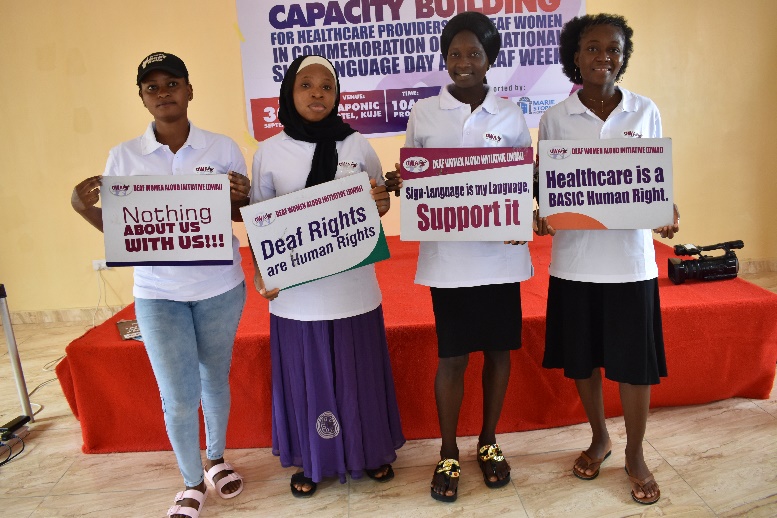
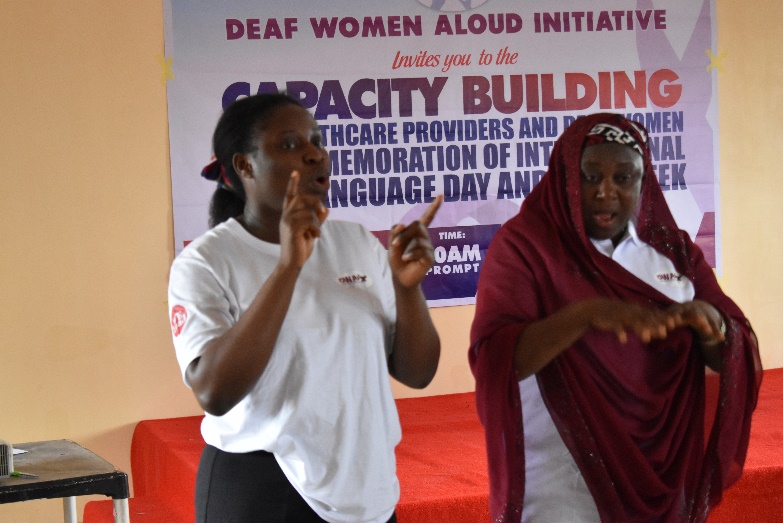
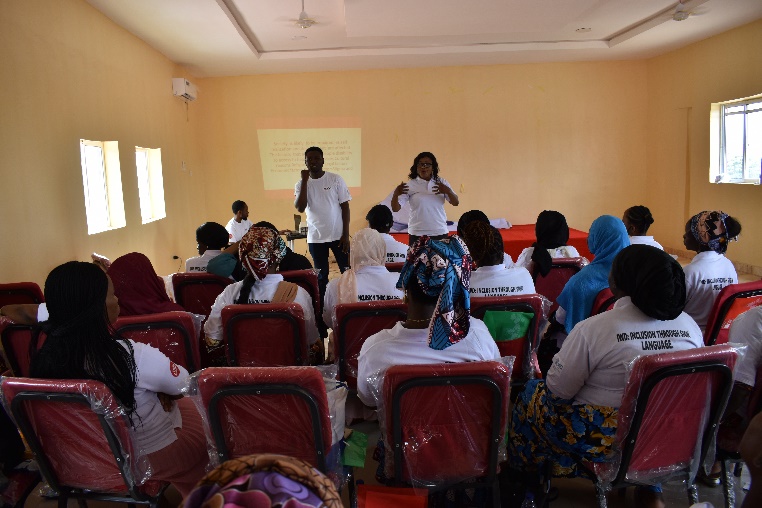
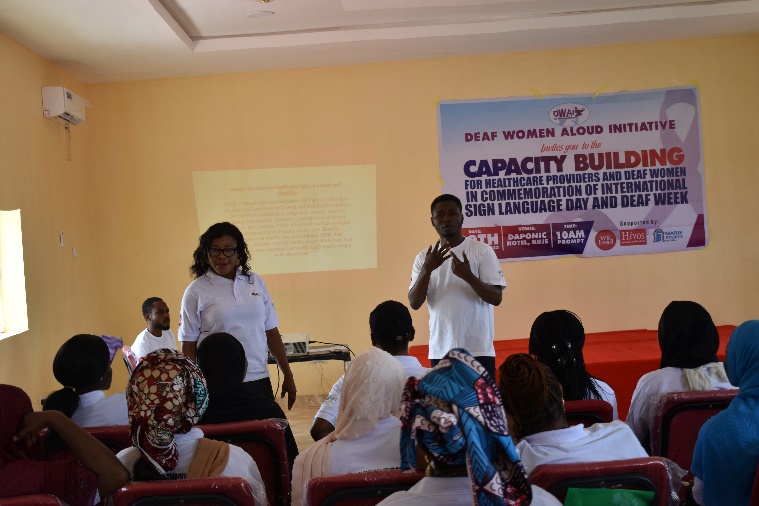
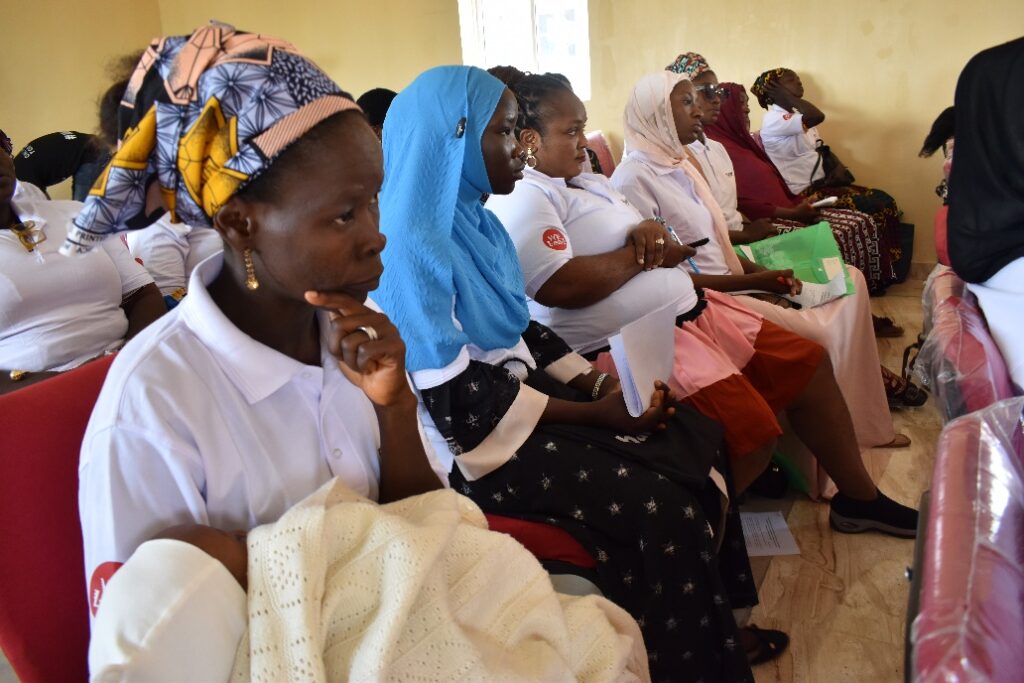
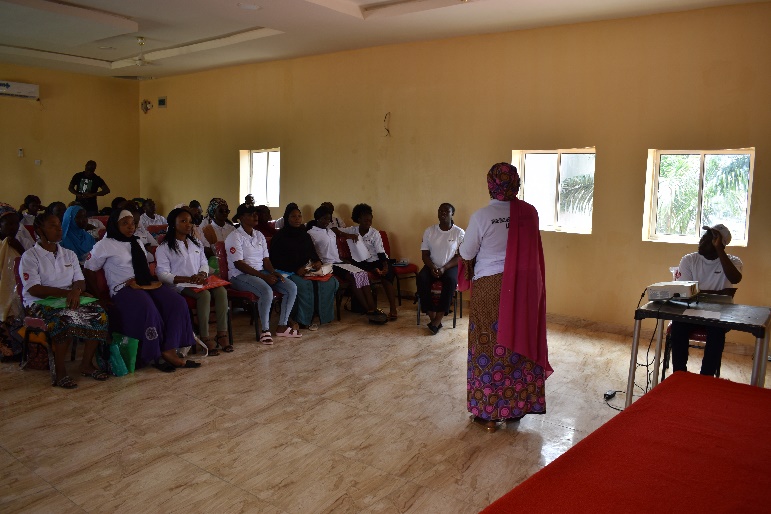
“These intergenerational norms include traditional beliefs, patriachy, religion, negative perceptions of people with disabilities and certain myths and misconceptions. These constitute collecctively work to create a negative perception that is emphasized by false stereotypes that make it difficut for people with disabilities to access healthcare services in Nigeria”.
“As a deaf person, these barriers manifest in different ways, and they serve to alienate deaf women and girls who seek to access healthcare in Nigeria”.
She pointed that these negative norms translate to a lack of government funding for SRHR services for people with disabilities, negative misconception of women with disabilities by health service providers, lack of inclusive services for women with disabilities, lack of agency for women with disabilities on issues affecting them and outright denial of services in certain extreme cases.
“To combat these intergenerational norms and create an inclusive environment for deaf women, it is necessary to do create public awareness on the health rights of women with disabilities, encourage government budgetary allocation for SRHR for women with disabilities, institute mechanisms to protect the SRH rights of young women and gitls with disabilities, and implement existing health policies in order to ease access to SRH services for young women and girls with disabilities.
Also, make health care centers accessible and inclusive by providing sign language interpreters, access ramps and documents published in braille. Include women with disabilities in the decision making process when making decisions that directly affect ehem as they’re knowledgeable about what works best for them.
She proposed investment in research and needs assessments to better understand the challenges and needs of women with disabilities and how they can be addressed.
Monsurat shared her experience as a deaf woman accessing healthcare in the FCT. The challenges she faces and her thoughts and suggestions about how to improve access for deaf women and girls.
Mrs. Stella Ojeh of Hope Initiative in her presentation ‘Stigma Reduction for Inclusive Sexual and Reproductive Health and Rights (SRHR) discussed the types and causes of stigma and discrimination and their effects on the stigmatized.
She explained that cultural, religious and economical considerations lead to stigmatization of persons with disabilities.
The effects of the stigma on people with disability can be far reaching and devastating. They may include mental disorder resulting from trauma, personality disorders, depression, low self-esteem, lost of hope and in some cases suicide.
“To end stigma against people with disabilities, we must work collectively and collaborative to reduce/ eliminate the level of discrimination towards people with disability. We must remain committed and join efforts to eliminate stigma and discrimination against people with disability. We must build on the success that we have achieved going forward and health care workers should be trained on interpersonal communication and effective and efficient service delivery for people with disability”.
She concluded by sharing the key provisions of the Nigeria HIV and AIDS Anti-discrimination Act 2014. The act clearly states the rights of individuals to not be discriminated against. Institutional obligations and the penalties for violating the provisions of the act.
Some of the key highlights from the act include the right to privacy, right to employment and the right to welfare benefits. Others include the right to compensation and the right to appeal and recourse to court. Institutions and organizations are obligated to provide occupational safety, protect the rights of people living with HIV, affirmative action and treat the information of people living with HIV/AIDS with confidentiality amongst others. The penalties for breaching any of the provisions of the act include fines of up to 500,000 for individuals and 2,000,000 for organisations, a prison sentence of 1 year or both.
She concluded by encouraging healthworkers to understand that directly or indirectly, they have a relative or close acquaintance who is a person with disability. They should treat people with disabilities that come to their facilities with the same empathy and consideration that they would want their family members to be treated.
At the end of the training, healthcare workers made and affirmation and commitment to always seek to improve inclusion for deaf women and girls accessing Sexual and Reproductive healthcare in their different facilities. They also committed to raising awareness among their colleagues on the issues raised by deaf women and girls and encourage them to improve their attitudes and put aside their biases and treat deaf woman and girls with respect and empathy.
The participants who made the affirmation on behalf of other health workers are Ada Nwaneri from Kuje Primary Healthcare Center, Tchelaphih from Kuje General hospital and Dinatu Yahaya on behalf of DWAI.

